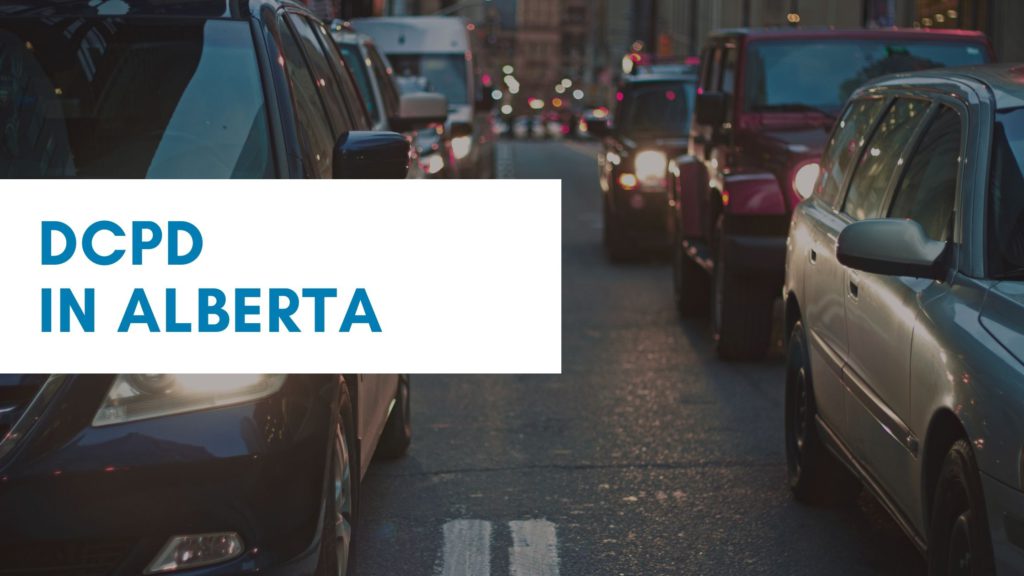On January 1st 2022, Direct Compensation for Property Damage (DCPD) will go into place in Alberta. This is a mandatory coverage that will be automatically added to all auto insurance policies. This includes personal vehicles, commercial vehicles and fleets, motorcycles, ATVs and motorhomes. DCPD is already being used in many provinces across Canada including Quebec, Ontario, New Brunswick, Nova Scotia, Newfoundland, and PEI.
What is DCPD?
DCPD applies to damage to your vehicle and its contents, as well as your loss of use coverage if your vehicle is damaged in an accident. It is called direct compensation because in the event of an accident, you will work with your own insurance provider on all claims for vehicle repairs, regardless of who is at-fault in the accident. This will expedite the entire claims process and make for a more efficient system as a result. You will no longer need to wait for a decision from the other party’s insurance company on how to proceed with the claim.
How does it work?
DCPD applies only when you are not at fault or only partially at fault in a vehicle collision.
|
At-fault/Not at-fault determination |
DCPD Coverage |
|
100% not at-fault |
Covered |
|
Partially at-fault |
Covered for the not at-fault portion of damage* |
|
100% at-fault |
Not covered* |
*If you have added optional collision coverage onto your auto insurance, this would cover the at-fault portion of your claim. If you don’t have collision coverage on your policy, you would need to pay for the at-fault portion of damage out of pocket.
FAQs:
Does DCPD change my current auto insurance coverage?
DCPD will not change your auto coverage, just who pays for damages in the event of an accident. You will not need to do anything to update your policy when the changes go into effect in January 2022.
Can I customize my DCPD policy?
No. DCPD is included as a standard component of your auto policy and isn’t customizable. Collision insurance remains an optional purchase if you would like more robust coverage.
Is there a DCPD deductible?
There is no deductible required to be paid before your insurance policy kicks in. Your insurer will pay out for any damage in the accident, if you’re not at fault. Some insurers may offer a DCPD deductible to help lower your insurance premiums. Ask your insurer if this is an option available to you.
How will DCPD affect insurance rates?
DCPD is meant to be a fairer approach that will better align insurance premiums with the costs to repair your vehicle when you’re involved in an accident. Your insurance premium may fluctuate depending on the car that you drive. Typically, owners of less expensive vehicles that cost less to repair may see a decrease in their insurance premium. Similarly, if you own a more expensive vehicle that costs more to repair, you might see an increase from your current premium. The majority of drivers will see no change or a small difference in their premiums.
Does DCPD apply to non-collision claims like hail, fire, theft?
No. DCPD only applies to damage to the vehicle and its contents caused in an accident. Comprehensive coverage will protect you from damage caused by things other than a vehicle accident such as a fire, hailstorm or vandalism. Collision coverage will protect you if you are at-fault in a vehicle accident or if your car hits an object such as a road sign or barrier.
If you have any other questions about DCPD, please feel free to reach out to your account representative at Fuse and we would be happy to help.
